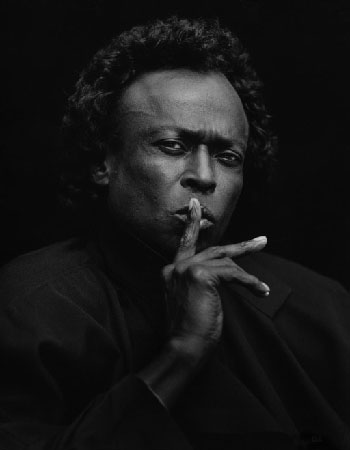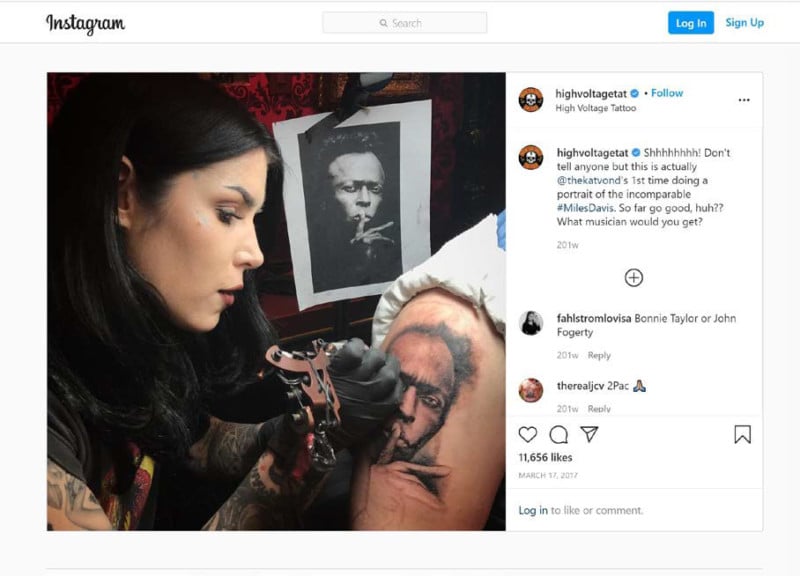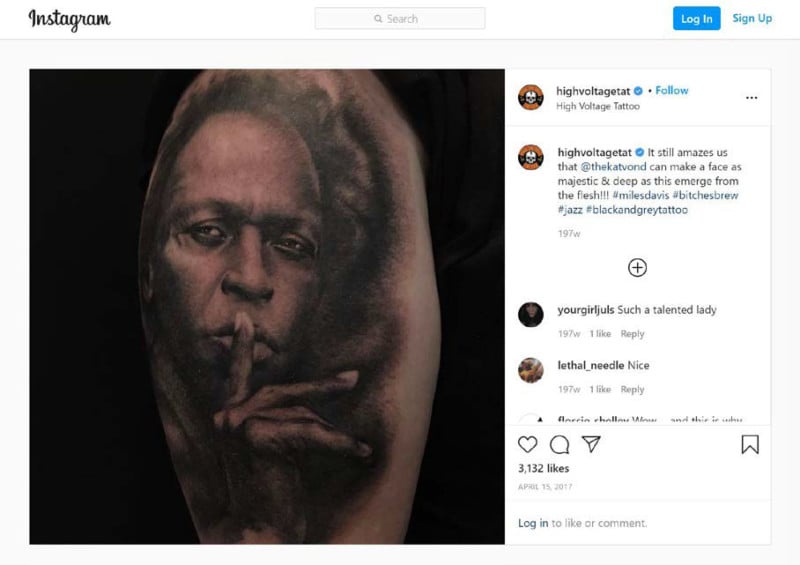Photographer Asks Appeals Court to Reverse Kat Von D’s Win Over Miles Davis Tattoo
![]()
An appeals court heard a photographer’s bid to overturn a verdict clearing celebrity tattoo artist Kat Von D of copyright infringement over her use of his photo of Miles Davis — arguing the decision should have been decided by a judge, not “a poorly-instructed jury.”
Photographer Jeffrey Sedlik asked the US Court of Appeals for the Ninth Circuit last week to erase the 2024 jury verdict that Von D’s tattoo — partly traced from his photo of the jazz legend — wasn’t similar enough to be considered copyright infringement.
In 2021, Sedlik filed a first-of-its-kind lawsuit accusing Von D of infringing on his copyright by using his iconic 1989 photo of Davis for a tattoo on her friend Blake Farmer — that she inked free-of-charge for him.



Last year, Von D scored a resounding victory against Sedlick when jurors in a Los Angeles federal court took less than three hours to unanimously rule that the tattoo artist did not infringe on photographer Sedlik’s copyright. They ruled that her inking was not “substantially similar” to Sedlik’s copyrighted portrait of Davis at the center of the trial and therefore did not violate copyright law.
According to a report by Bloomberg Law News, Sedlik’s appeal against the verdict argued that infringement should’ve been decided by a judge, not “by a poorly-instructed jury swayed by a celebrity defendant.”
The case, which was heard by a three-judge panel last week, will examine how much power judges should have to decide if two works are too similar — and whether jury decisions in these cases should be respected or overruled. While courts sometimes resolve such issues through summary judgment, they’re typically left to juries because they’re highly fact-specific. The outcome of Sedlik’s appeal could reshape how much power judges have to bypass jury decisions in copyright cases.
In a statement to Bloomberg Law News, IP attorney Armin Ghiam of Hunton Andrews Kurth says that Sedlik’s case should have been “a straight summary judgment” because the tattoo is clearly a derivative work and called the jury’s verdict “shocking.” Ghiam says he has trouble seeing the subtle distinctions in shading, hairline, and lighting that Von D pointed to as differentiators.
“They started from the photography, they changed a couple things, they added stuff,” Ghiam tells Bloomberg Law News. “It might be valuable, it might make it better, but it doesn’t change the nature of that photograph.”
Image credits: All photos via court documents.